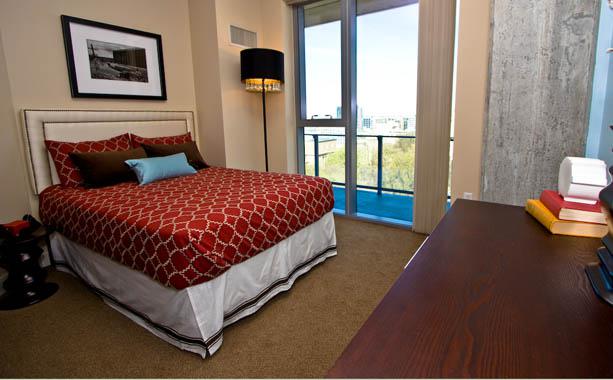Everyone in the military is entitled to free, or low cost, military housing as part of the package. The size and type of government housing is dependent on the size of your family and your rank. The higher up the chain of command you move, the larger property you will be entitled to.
If you don’t want to live on-base, you are also entitled to BAH, Basic Allowance for Housing, which offers rent or mortgage assistance for those who want to live in society. The amount of BAH you’re entitled to is also determined by rank, location and the number of dependents you may have.
Those in the National Guard or Air Force Reserves may also be entitled to BAH, called BAH Type II. This is active any time you’re on duty for 30 days or more. You will not be entitled to government housing, but the allowance is designed to help while you’re on active duty.
One of the aspects of military life is the moving around. You get to see different places in and live in them for a while. This is great while you’re single and living on-base, but can become a pain when you have a family. When you’re in one place for a year or two, you can’t put down roots.
Furnished rentals are a great middle ground. They offer off-base housing for a fixed term. They also offer a predictable quality, a range of locations and can be a home while you’re posted. They are becoming increasingly popular with airmen with families as they offer the freedom of living off-base and the flexibility to move with postings.
Military law dictates any serving personnel has to provide for their families and dependents. One of those provisions is adequate housing. That means even if you’re in training, advanced school or AIT, you need to provide. Any BAH you may be entitled to will be included in your bi-monthly paycheck.
If you’re single, and below E-4, you will probably have to stay on-base. Some locations will allow an E-4 of 3 years or more service to live off-base, but only with permission.
Government housing for Air Force personnel is mixed at best. While there is a continuous program of improvement, many bases still have only basic housing. Fortunately, the Air Force was the first of the services to undertake this improvement, but there is still a long way to go.
All personnel, once through basic training and technical school are now entitled to a private room. The Air Force started with reconfiguring every barracks into “one-plus-one.” This provides a private room, a kitchen, and ablutions shared with one other.
A new program called “Dorms-4-Airmen” has replaced one-plus-one and are gradually replacing this configuration with apartment-style units. Airmen have a private room and private bath each and just have to share a kitchen and living room with three others.
Any personnel of E-4 and above can live off-base with permission. Many of those with families choose to do so and choose government housing assistance, BAH, to help finance it.
There are benefits and downsides to living on-base. The benefits are that it is a ready-made community that offers somewhere safe and secure to bring up children. There are no worries about crime, social unrest, drugs and the other diseases infecting our society.
Depending on the base, the military provides everything the family needs to live within the confines of the base. That includes schools, crèche, stores and supporting services. It’s quite easy to live on-base and not have to leave at all if you so wish.
Unfortunately, there are as many limitation as there are benefits. The security checks to get you in and out of a base can be exhausting. While completely necessary, they are laborious and have to take place each and every time. It’s the price you have to pay for that increased security.
Base housing if basic, and sometimes poor. You can decorate in most government housing, but not change the layout or do anything that will damage the property. You are given a house, not given a choice to selection one. So if you don’t like your allocation, tough.

Many long-term rentals will waive the administration fees for military personnel. They may even waive the security deposit too. The base housing officer will have a list of “approved” off-base accommodation if government housing isn’t to your taste.
By selecting your own rented accommodation, at least you have some choice about where it will be, what the layout is, the location, building amenities and opt for some extra space if you pay for it. Want an extra bedroom to work? To turn into a playroom or games room? In a rented place you have the freedom to buy the extra space, with government housing you do not.
The quality and size of rented housing is down to how much you can afford, not your rank and length of service. That offers significant freedoms in terms of where you live. While it will never replace owning your own home while you’re on active duty, it’s the next best thing.
The military is working hard to improve on-base accommodation, but with a cash-strapped government, housing isn’t at the top of the agenda. The focus is very much on improving care for veterans and rehabilitation for those injured on duty. Until those problems are addressed, not much new money will be directed to housing.
Once you’re an E-4, you have the choice whether to live on-base or off. While you’re single, it makes sense to enjoy military life and the company of your buddies. When that time comes, and family appears, it may be worthwhile exploring alternatives to government housing and using that BAH for your own benefit.